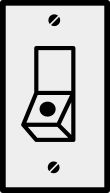Drupal 8 : create a custom Rule Action
Par Mathieu le mercredi 27 juillet 2016, 10:56 - Hacks - Lien permanent
Warning : the Rule plugin for Drupal 8 was not considered stable when I wrote this post.
1. Drupal 8: the new modules paradigm
Drupal 8 modules structure changed, and many modules are now using the new API.
No more plain old functions name like hook_something, no more obscurous PHP for menu entries. Instead, Object Oriented programming, YAML configuration files, magic comments, and Symfony routing.
Let's give it a try, let's make our first simplest module.
2. Base module configuration
If you already know how to do this, jumb to next section.
Create a directory for your module, for instance mymodule.
Create an info file in YAML format : mymodule/mymodule.info.yaml:
name: 'My Module' type: module core: 8.x package: Custom
You don't need more! You don't need routing as you will plug into Rules.
3. File names and Namespaces
Create the RulesAction directory and its parents: mymodule/src/Plugin/RulesAction/
Create a PHP file for your class: MyAction.php. The class will be loaded with the autoload system.
Edit the file you just created, and specify the namespace at the beginning of the file:
/** * @file * Contains \Drupal\mymodule\Plugin\RulesAction\MyAction. */ namespace Drupal\mymodule\Plugin\RulesAction; use Drupal\rules\Core\RulesActionBase;
The namespace must correspond to your module name and class name!
4. Rule Action specifications and parameters
Comments are very important as they are also specifications. You will define your Action id, description, and parameters. For instance, here is a copied sample from the predefined action DataSet:
/**
* Provides a 'My action' action.
*
* @RulesAction(
* id = "rules_myaction",
* label = @Translation("Set a data value"),
* category = @Translation("Data"),
* context = {
* "data" = @ContextDefinition("any",
* label = @Translation("Data"),
* description = @Translation("Specifies the data to be modified using a data selector, e.g. 'node:author:name'."),
* allow_null = TRUE,
* assignment_restriction = "selector"
* ),
* "value" = @ContextDefinition("any",
* label = @Translation("Value"),
* description = @Translation("The new value to set for the specified data."),
* default_value = NULL,
* required = FALSE
* )
* }
* )
*/
The Rule id is rules_myaction.
The category of the action in the dropdown menu is Data and it will be labeled Set a data value.
The current action will have two parameters : the data that will be changed, and the corresponding value.
5. Rule Action callback
Again, no more plain callback, the function doExecute will be called to execute your Action:
class MyAction extends RulesActionBase {
/**
* Executes the Plugin.
*
* @param mixed $data
* Original value of an element which is being updated.
* @param mixed $value
* A new value which is being set to an element identified by data selector.
*/
protected function doExecute($data, $value) {
$typed_data = $this->getContext('data')->getContextData();
$typed_data->setValue($value);
}
/**
* {@inheritdoc}
*/
public function autoSaveContext() {
// Saving is done at the root of the typed data tree, for example on the
// entity level.
$typed_data = $this->getContext('data')->getContextData();
$root = $typed_data->getRoot();
$value = $root->getValue();
// Only save things that are objects and have a save() method.
if (is_object($value) && method_exists($value, 'save')) {
return ['data'];
}
return [];
}
}
The class name has to correspond to your file name.
In this sample, the parameter $value will be set to $data.
6. Troubleshooting
Uncaught PHP Exception Drupal\\Component\\Plugin\\Exception\\PluginException: "Plugin (rules_myaction) instance class "Drupal\\tbh_system\\Plugin\\RulesAction\\MyAction" does not exist."
Your namespace/classname/filename/directoryname is probably wrong.


Commentaires
Thanks for this. I was stuck using the, apparently, deprecated official documentation: https://thefubhy.gitbooks.io/rules/...